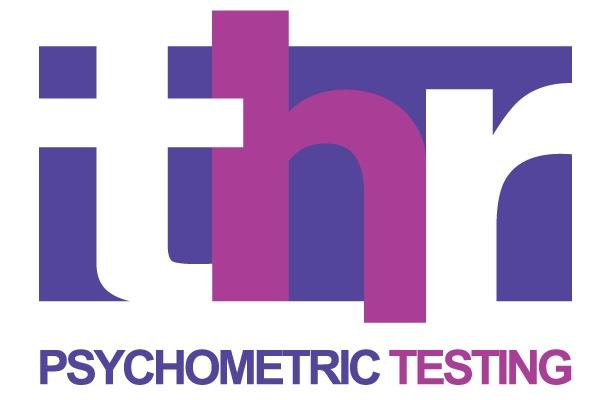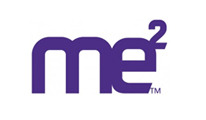Psychometric profiling to help manage change

Psychometric assessments remain a powerful tool for many organisations and while there’s a tendency to think of them as a recruitment aid, psychometric profiling can be extremely useful when managing business change. Bear in mind that psychometric personality assessments are not there to help assess skills or ability but what they do provide is valuable insight into the sort of people you’ve got in your team. That may mean how they’re likely to react under pressure or in the face of change, their preferred methods of working and their basic personality type. It’s therefore not hard to see how, if armed with this new layer of information, you will be better equipped to make change in your business a really positive experience and guide your team successfully through the Change Curve that I discussed in my last blog. There are many types of personality assessment and the first thing before you decide to work with one, is to be clear about what you want to get from using one, whether it is understanding those in your team better, helping the team to understand each other better, or to make the necessary changes effectively. The tools can be used as instruments of change, to make selections, and to shape a new team, but experience has shown that the most effective use of these tools is in raising awareness of the strengths, limitations, differences and otherwise un-tapped potential of the individuals in your team/s; how these can best work together constructively to create a formidable and cohesive unit while being aware of others differences; helping to avoid misunderstanding, conflict and stress or to build resilience.
Myers Briggs Type Indicator (MBTI)
By way of example, one of the most widely known personality assessments is the MBTI. When you take the assessment, you’ll be categorised into one of 16 types, each type made up of 4 of a possible 8 components, namely: Extraverted or Introverted, Sensing or iNtuiting, Thinking or Feeling and Judging or Perceiving. So, for example you might be classified as type ISTJ or you might be INFP, but your combined preference is just that, and each of us use other elements to varying degrees in a natural and fluid way, depending on the situations we are faced with.
Each component or preference can broadly be explained as followed:
- Extraversion means you get your energy from the external environment rather than those with a preference for introversion who are drawn to contemplation and tend to reflect before acting or speaking.
- If you’re Sensing then you prefer what is real and observable more than someone who is rated as iNtuiting whose focus is likely to be on the big picture, or possibilities and potential.
- A person with a Thinking preference will tend to draw on logic in their decision making whereas someone with a Feeling preference makes their decisions guided by their personal values more.
- Finally, those that are Judging tend to prefer a lifestyle that is well-structured, getting things booked in advance or decided as opposed to a Perceiving person who is generally willing to keep options open, be more spontaneous and accepting of last minute pressures.
How personality preference can help
There’s a lot more depth in the analysis of the MBTI types than I cover in one blog but even at surface level, it’s not hard to see how this information might help you to manage change. And one of the most important benefits of this type of information is in helping you to plan that change.
If you are approaching any restructuring, or adding or losing staff, it’s extremely helpful to know what kind of team you currently have. You want to have a balanced mix of different personality types that work well together.
It may seem obvious but with recruitment techniques still mainly based on interviews and CVs and redundancy often based on skill, qualification or length of service, the personality of a team often gets neglected. And an unbalanced workforce that isn’t working in harmony is almost certainly going to throw up some additional challenges when they’re faced with some of the difficult issues involved in change.
Knowing what sort of preferences your staff have can also help you plan what different types of mediums and information will best suit individual team members. Are they going to need fact, figures and logical, structured arguments or would something more creative and visual work better? Is written information going to be more important than one to ones and meetings and which people are going to struggle with the loss of their structured routine more than others? If you think back to the Change Curve I discussed in my last blog, again it’s not hard to see how certain types may have more difficulty moving through the stages from shock and anger to acceptance.
Managerial and Professional Profiler (MAPP)
As the name would suggest, the MAPP is a particularly useful tool when it comes to choosing suitable people to be involved in any change. The MAPP is a detailed trait (rather than broader type)-based tool, which looks at personality and motivators and can be helpful when it comes to measuring particular aspects of personality. Your choice of manager who’s articulate, logical and persuasive may be a poor choice if it turns out they lack any inherent empathy or self-awareness to be able to motivate and lead others effectively enough. Or perhaps you find that they are highly motivated by praise, when you know your own time and ability to provide this during the change process will be hard-pressed; allowing you to be honest about this and agree on a workable alternative rather than it becoming a source of tension.
There are also tools available that focus specifically on measuring Emotional Intelligence or Creativity and providing a profile of your team in these areas enables their strengths to be tapped and areas identified for development, particularly as both EI and Creativity have elements in them that are develop-able.
The depth of information from psychometric profiling is extensive but even with just a cursory look at the insights provided, it’s easy to appreciate the value. With a reported 89 of America’s Fortune 100 companies reportedly using personality assessments, and with a year ahead that’s undoubtedly going to spell change for a lot of businesses, they are certainly well worth considering, if you want to make change in your business a success.
With over 27 years HR experience, Tracy Humphrey heads up the team at THR Consulting with an impressive array of qualifications and skills. She specialises in supporting HR departments, planning and implementing change and performance and talent management.
THR Consulting are qualified and approved to use a number of psychometric profiling tools including Managerial and Professional Profiler (MAPP) from KCP, Myers Briggs Type Indicator (MBTI) from OPP, Occupational Personality Questionnaire (OPQ) from SHL and Me2 General Factor of Creativity from E-Metrixx.
If you’d like to embrace all that the next few years bring with confidence that your business and the people in it are ready for change, contact THR Consulting today on 01444 220762.




